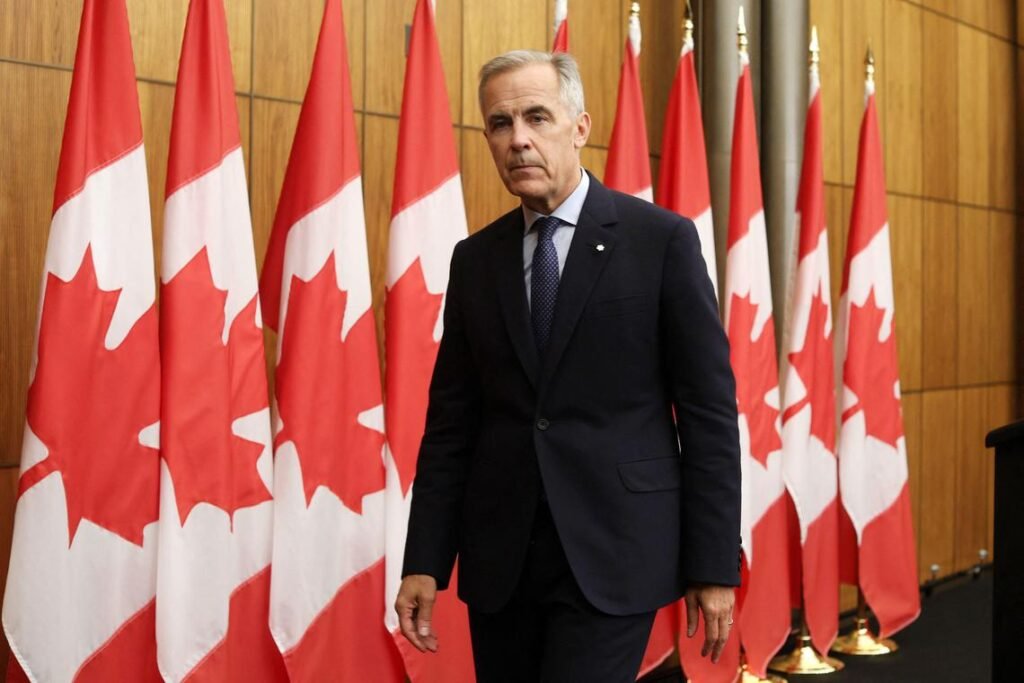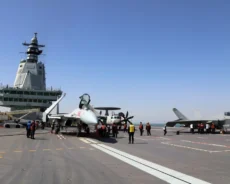
In a major policy development, Canadian Prime Minister Mark Carney has announced that Canada will recognize the State of Palestine this September, becoming the third G7 nation in recent days to declare its intent to do so. This announcement marks a significant shift in Canada’s foreign policy stance and places the country squarely in the growing chorus of Western nations pressing for tangible progress on the Israeli-Palestinian conflict.
A New Diplomatic Direction
During a press conference held on Wednesday, Carney stated that Canada’s recognition of Palestine would be formally declared at the upcoming United Nations General Assembly. However, this recognition comes with conditions. The Palestinian Authority must commit to democratic reforms and hold national elections in 2026, free from Hamas participation. Carney emphasized the need for responsible governance and demilitarization as prerequisites for Canada’s recognition.
His announcement follows similar declarations by two of Canada’s closest allies, the United Kingdom and France. Last week, France unveiled its intention to recognize Palestinian statehood, and on Tuesday, the UK signaled that it would do so by September unless Israel halts its military operations in Gaza and meets other conditions.
A Turning Point in Canadian Foreign Policy
Explaining the rationale behind the decision, Carney cited the expansion of Israeli settlements in the occupied West Bank, the deteriorating humanitarian conditions in Gaza, and the ripple effects of the Hamas-led attack on Israel on 7 October 2023. That attack, which claimed approximately 1,200 lives and resulted in over 250 hostages, sparked one of the deadliest and most prolonged military campaigns in Gaza’s recent history.
“The level of human suffering in Gaza is intolerable and it is rapidly deteriorating,” Carney said. “The prospect of a Palestinian state is being eroded before our eyes.”
He went on to say that Canada’s longstanding commitment to a negotiated two-state solution had proven increasingly untenable in light of recent developments. According to Carney, Canada’s policy shift reflects not only the failures of past diplomatic efforts but also the urgent need to find new pathways toward peace and justice.
Strong Reactions from Israel
The Israeli Ministry of Foreign Affairs swiftly condemned Canada’s announcement, calling it “a reward for Hamas.” In a statement released on the social platform X, Israel accused Canada of undermining efforts to broker a ceasefire in Gaza and jeopardizing negotiations for the release of Israeli hostages.
Israel has traditionally opposed unilateral recognitions of Palestinian statehood, arguing that they embolden Hamas and disrupt peace negotiations. The ministry’s reaction aligns with earlier statements directed toward France and the UK, both of which have faced pushback from Israeli officials since making their own announcements.
Israel also pointed to the Palestinian Authority’s lack of electoral legitimacy as a core concern. The territories governed by the Authority—mainly parts of the West Bank—have not held general elections since 2006. Meanwhile, the Gaza Strip remains under Hamas control, deepening the division between Palestinian political factions.
Domestic Criticism and Diplomatic Pressure
Within Canada, Carney’s announcement drew criticism from both political opponents and observers aligned with Israel. The Conservative Party released a statement condemning the move, saying, “Recognizing a Palestinian state in the aftermath of the October 7 terrorist atrocities sends the wrong message to the world.”
Still, Carney’s decision reflects growing domestic and international support for a reevaluation of Canada’s Middle East policy. On Tuesday, nearly 200 former Canadian diplomats and ambassadors signed an open letter urging the Prime Minister to recognize Palestinian statehood. The letter cited the mass displacement, indiscriminate bombardment, and starvation of Palestinian civilians as urgent factors requiring diplomatic intervention.
“Canada’s principles are being abandoned daily with the massive displacement and starvation of Palestinian civilians,” the letter stated. It also pointed to violent incidents involving extremist Israeli settlers in the West Bank as examples of escalating instability and impunity.
Carney dismissed speculation that Canada’s decision was influenced by announcements from France or the UK. When asked if he had consulted with U.S. President Donald Trump—who has maintained strong support for Israel—Carney replied that Canada makes its own foreign policy decisions independent of other nations.
A Shifting Global Landscape
If France and the UK formalize their recognition of Palestinian statehood in September, the United States would become the only permanent member of the UN Security Council not to do so. The U.S. has consistently supported a negotiated two-state solution but has stopped short of unilateral recognition, largely due to its close diplomatic and military ties with Israel.
Canada’s position now places increased pressure on the U.S. to reevaluate its stance. As public opinion and international diplomacy shift in response to the humanitarian crisis in Gaza, many experts believe Washington will be forced to clarify its approach to Palestinian statehood.
While most countries worldwide—147 out of the 193 UN member states—already recognize Palestine, recognition by major Western powers carries unique political weight. These recognitions signal a broader recalibration of diplomacy in the region, one that may alter the balance of negotiations and revive long-stalled peace talks.
The Cost of Conflict
The consequences of the Gaza conflict remain staggering. Since Israel launched its military offensive in response to the October 7 attacks, more than 60,000 people have reportedly died in Gaza, with 154 fatalities attributed to malnutrition. Among them were 89 children, according to Gaza’s Hamas-run health ministry.
The humanitarian fallout is driving renewed calls for international accountability. Videos and news reports showing starvation and widespread displacement have prompted condemnation from human rights organizations, advocacy groups, and civil society leaders around the world.
Meanwhile, diplomatic initiatives from countries like Canada, France, and the UK are being viewed not just as gestures of solidarity with Palestine, but as instruments to pressure Israel into ceasing hostilities and engaging in meaningful dialogue.
Looking Ahead
Carney’s announcement marks a defining moment in Canada’s role on the global stage, particularly in its efforts to mediate peace in a long-standing and deeply complex conflict. Whether this recognition will contribute to positive change remains to be seen, but it undoubtedly places Canada among the growing ranks of nations demanding a new paradigm in Middle Eastern diplomacy.
For Palestine, formal recognition from key G7 countries presents both hope and challenges. Without internal political reform, particularly the reconciliation between Hamas and the Palestinian Authority, the dream of statehood may remain elusive. Nevertheless, the momentum appears to be building, and Canada’s stance is poised to play a pivotal role in shaping what comes next.















